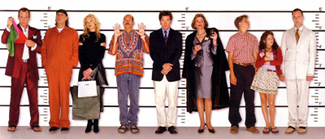As promised, I’m here to deliver my opinion on whether external players, especially President Obama, should intervene in Iran. I believe he shouldn't. In fact, I implore the President to not do so.
Quite a few smart people have been saying so, like
Trita Parsi, the president of the National Iranian American Council.
Obama
shouldn’t (and
hasn’t) taken bold action on the situation. So far, the president has only delivered a strongly worded
statement on Iran, urging the authorities to quell the violence against the protesters:
The Iranian government must understand that the world is watching. We mourn each and every innocent life that is lost. We call on the Iranian government to stop all violent and unjust actions against its own people. The universal rights to assembly and free speech must be respected, and the United States stands with all who seek to exercise those rights.
As I said in Cairo, suppressing ideas never succeeds in making them go away. The Iranian people will ultimately judge the actions of their own government. If the Iranian government seeks the respect of the international community, it must respect the dignity of its own people and govern through consent, not coercion.
Martin Luther King once said - "The arc of the moral universe is long, but it bends toward justice." I believe that. The international community believes that. And right now, we are bearing witness to the Iranian peoples’ belief in that truth, and we will continue to bear witness.
In this statement and in his actions (or lack thereof thus far on the issue, he has proven his political acumen and his knowledge of American-Iranian history.
Prior to 1979, the West
didn’t have a great reputation with many of the people of Iran, especially the
ulama (
religiouis scholars). In brief, below is a rundown of some of the events that created the basis of anti-Western feelings in Iran and part of the basis for establishing the Islamic Republic.
(Caveats: a) I'm an history/political science
enthusiast, not expert, b) Brief really means brief. - So please let me know if I'm a total d.b. for posting inaccuracies or for withholding vital information.)
When the
Qajars were in power (1794-1925), two important incidents highlight the reason for the anti-western flavor that existed in some elements of Persian society.
The Reuter Concession & the Tobacco Revolt: The
Qajars developed a rep for being corrupt. At times, they conceded aspects of their economy (like giving the British a monopoly on their tobacco industry) to fund their selfish and flamboyant desires at the expense of Persia. (Kim
Jong-
il must have picked up a thing or two about from the
Qajars.) But the
ulama united with the merchants (and the general public) to fight the unjust concessions and were successful. Thus, authorities who dabbled with the West did not always sit well with the
ulama and general population because they did not seem to serve the public interest.
And then the US literally steps in when the
CIA unseats Mossadeq: After WWI, a coup put the
Pahlavis in power. Pahlavi Shah (a secular modernizer along the lines of Ataturk) gave the West access to one of the country’s most vital resources—oil. Essentially, this development
begat the rise of Mohammad
Mossdeq and the National Front.
Mossadeq had the support from the
ulama because he was anti-Western and wanted to nationalize Iranian oil. When the Shah of Iran (Muhammad
Reza) tries to dismiss the popular Prime Minister
Mossadeq, a national revolt transpires in discontent. The ever-resourceful and conniving CIA unseats
Mossadeq and the Shah returns to power (in 1953) and is very pro-Western in his policies. Then, by the 1960s and 1970s, Iran becomes a police state.
While the Shah is in power, a religious cleric,
Ruhollah Khomeini, is boiling with frustration. Khomeini studied under the leading
ulama in Iran and was very interested in philosophy and mystical thought. Khomeini developed the doctrine of
vilayet-i faqih (guardianship of the jurist) which became the basis for an Islamic state. It is written in his book,
Hukumat-i Islami (Islamic government).
It says:
- Political authority should lie in the ulama because they are the trustees of the authority of the imams, who are the vice regents of God, duh.
- The unity of the umma (Islamic community), the liberation of the Islamic homeland from occupation and the imperialists, and the unity/freedom of Muslims depend on overthrowing imperialist-backed, oppressive government. Because of this, an Islamic government of justice must be installed.
So, as we know, the protests were intense and the Shah fled. After he threw in the towel, Khomeini made a triumphant return to Iran and the rest is history.
Given the history of Western oppression and intervention in Iran (politically and economically), and the principle of
vilayet-i faqih, President Obama’s tacit response on Iran is right on point.
A bold response or action would play into the rhetoric of the Iranian authorities, especially the most conservative elements who don’t give a rat’s bum for democracy. A response would only serve to feed the legitimacy and the basis of the Islamic Republic’s foundation—Western oppression and interference. And this would hold major ramifications for the protesters.
It is unclear at this point what is going to happen. We don’t know if it’ll be a repeat of 1979, with a complete turnaround in government and the end of the Islamic Republic, or a
Tiananmen-style crackdown that hushes the opposition.
I do believe we are witnessing a pivotal point in the history of the Islamic Republic. The truth will prevail,
in shaa' allaah.
"Use truth as your anvil, nonviolence as your hammer and anything that does not stand the test when it is brought to the anvil of truth and hammered with nonviolence, reject it." - Mahatma Ghandi









